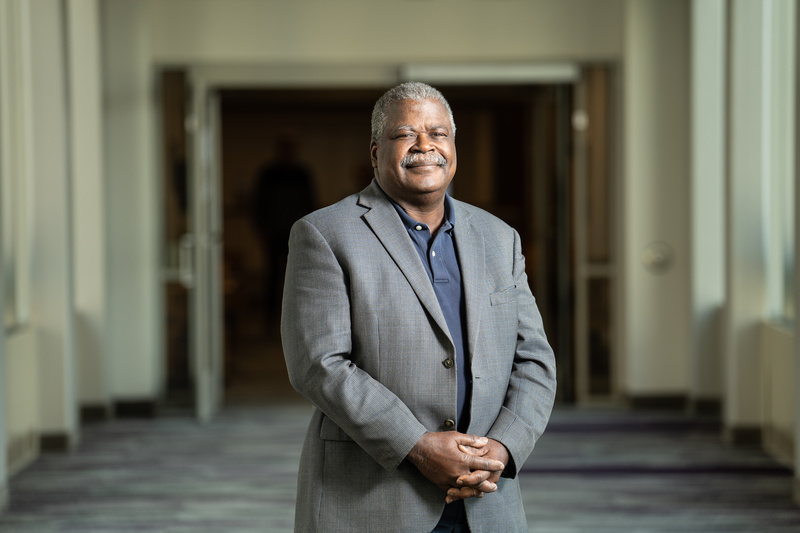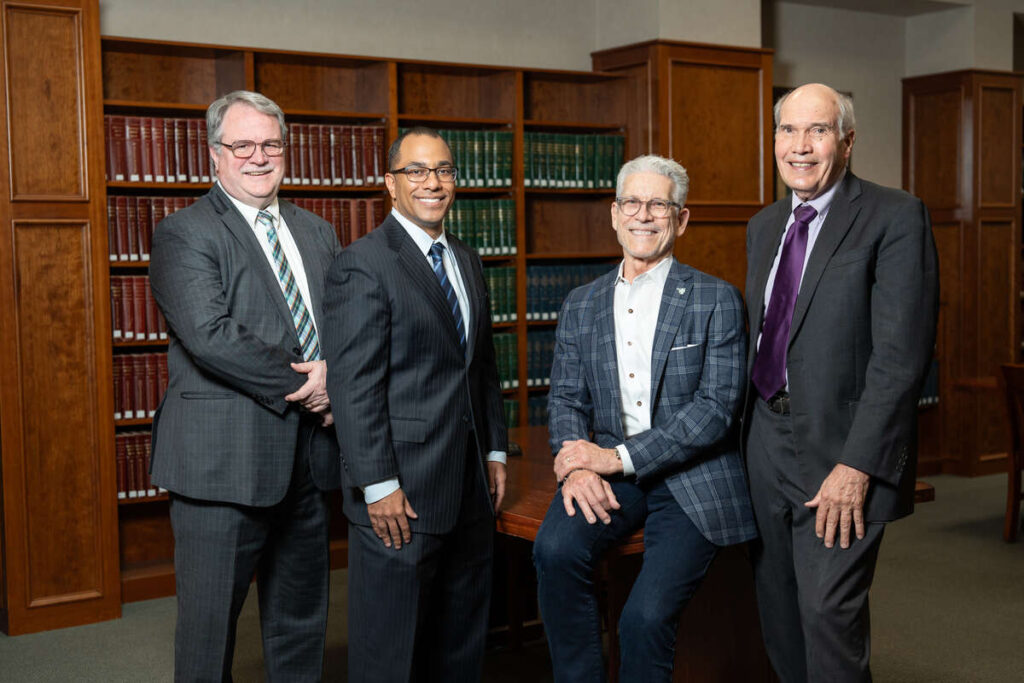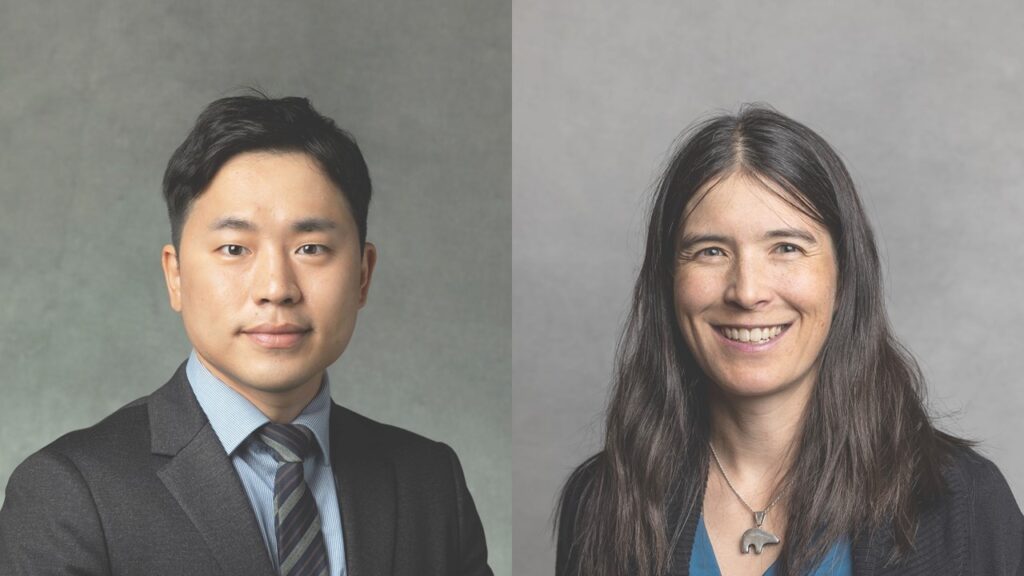As the Melrose and The Toro Company Center for Principled Leadership at the University of St. Thomas approaches the one-year anniversary of its transition from the former Center for Ethics in Practice, the Newsroom connected with Academic Director Dr. Christopher Michaelson and Executive Director Dr. Nicole Zwieg Daly on highlights, podcasts, award nominations, books to read this summer and more.
1. What have been the highlights of the last 12 months?
The Melrose and The Toro Company Center for Principled Leadership aims to reach three primary stakeholders – students, scholars and the business public – through activities focusing on three main themes – the liberal arts and leadership, meaningful work, and the role of business in society.
There have been many highlights!
Center renovations:
The university has started renovations on the center’s newly created space. Located on the first floor of Terrence Murphy Hall (Room 100) in Minneapolis, the center is located in a high-traffic area off the main atrium and building entrances intended to increase center visibility and ease of access. The space will include administration and office space as well as a large flex space for education, programming and event use. Renovations are expected to be complete this summer.
We continue building strategic relationships with internal and external community partners to develop highly impactful educational programs across the Twin Cities and nationwide. Ongoing and future foundational work includes:
Creative programming partnerships:
- The center is exploring partnering with the Minneapolis Institute of Art Center for Empathy and the Visual Arts to develop programming and research connecting art, empathy and principled leadership practices. In late 2021, center collaboration with MIA and the University Advancement team aims to create a special event for university donors connecting the importance of the humanities with business for the common good.
- On Feb. 10, 2021, the center co-sponsored the Opus Business in a Digital World initiative's quarterly speaker series featuring Ilana Lipsett of the Institute for the Future. Ilana discussed how the Ethical OS Toolkit can help businesses support the future impact of today’s technology.
- The center is continuing its relationship with the Guthrie Theater. Ongoing discussions for tentative plans include: future events connecting center themes to upcoming plays; theater education in the classroom; collaboration on corporate training for Twin Cities businesses; and the second annual "A Christmas Carol and the Common Good" special event. We remain very enthusiastic about this partnership!
Melrose Twin Cities Principled Leadership Award: Coming this fall, this annual award will honor Ken Melrose’s legacy while publicly recognizing leadership that exemplifies principled leadership values. The award committee has been selected and has begun developing submission requirements and selection criteria. The award submission process ends June 30. A formal award event is being planned for Nov. 17 at the University of St. Thomas.
Corporate and community outreach: The center is continuing to work with the Racial Justice Initiative and the Center for Common Good, along with other partners and advisers, to explore the university’s role in supporting equitable and just business practices in the Twin Cities.
Meaningful work: Plans are being made to host the International Meaningful Work Conference at the University of St. Thomas in 2023.
Thought leadership:
As co-editors for the Books (and More) Reviews section of the Journal of Business Ethics, we have accepted our first book reviews for publication in winter 2021. Unique to academic convention, these reviews, which are ordinarily available only to academic subscribers, will be freely available to the business community and general public for eight weeks.
The book reviews answer two questions: "Is this book worth reading?" and "What ideas or questions will this book illuminate for anyone with interest in business ethics?"
- The Time is Now: Developing Leaders for Today's Organizations of Color by Cassandra Y. Owens and Helen J. Owens was reviewed by Vickie Cox Edmondson, professor of management at Tuskegee University. This review was free to access for a period of eight weeks and ended on April 23.
- Ian McEwan's book, Machines Like Me, was reviewed by Dr. Tae Wan Kim, associate professor of business ethics and Xerox Junior Chair at Carnegie Mellon University. This review was free to access for a period of eight weeks and ended on April 23.
- "The Social Dilemma," a Netflix documentary, was reviewed by Dr. Shuili Du, associate professor of marketing at the University of New Hampshire. This review is free to access for a period of eight weeks ending July 31.

2. The center is accepting nominations for the Melrose Twin Cities Principled Leadership Award through June 30. What characteristics would the ideal award winner have?
The Melrose Twin Cities Principled Leadership Award is a special award designed to honor the namesake of the Center, Ken Melrose; to honor principled leaders in our community who have made a positive impact on the common good; and to promote an aspirational vision of responsible and responsive leadership in practice.
Nominees for this award must:
- Come from the Twin Cities and/or influence the Twin Cities
- Be an identifiable individual or group of individuals
- Lead (or have led) from the top, middle or bottom of an organization and/or community
The ideal award winner would exhibit the following characteristics:
- Inspire principled leadership in our community by:
- Exhibiting principled leadership behaviors (fair, ethical, non-abusive)
- Demonstrating responsible and responsive leadership
- Exemplifying the five values of the center:
- Storytelling: Why are they an inspiration here and now?
- Serving: How does their work engage the ideal of business for the common good?
- Purpose: What is their work for? What makes it matter?
- Future: When we look back, what will we admire about them?
- Practice: How can we put their example to practical use?
3. Tell me about the center’s new podcast, “Work in Progress with Christopher Michaelson.”
The center's podcast, "Work in Progress with Christopher Michaelson," discusses every working person's work in progress, namely, our quest to be fully human in a working world that all too often makes us feel like machines, in which we often don't even have time to think, and that, in the words of Studs Terkel, too often feels like "a Monday through Friday sort of dying."
In the first podcast episode, host Christopher and guest Carnegie Mellon Professor Tae Wan Kim discuss the ethical implications of artificial intelligence for business and society, through the lens of Ian McEwen's recent novel, Machines Like Me.
The center's second podcast episode features Michaelson and two guests: the documentary reviewer, University of New Hampshire Associate Professor of Marketing Shuili Du, and University of St. Thomas Associate Professor Associate Dean of Graduate Program Innovation, Lisa Abendroth. Michaelson, Du and Abendroth discuss "The Social Dilemma," highlighting the good, the bad, and the ugly of social networking in today's world and in the future.
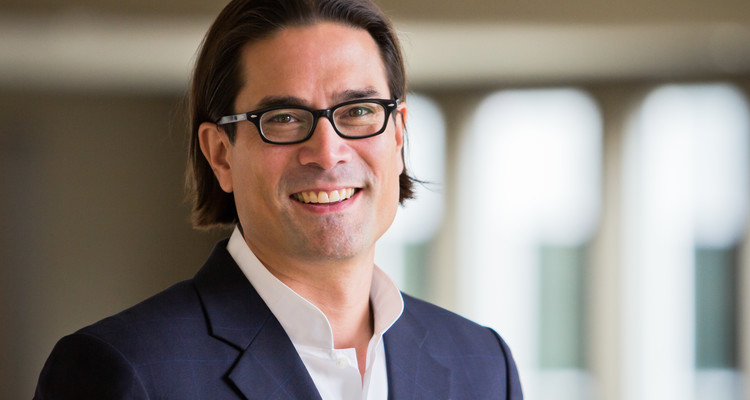
4. Christopher recently received the Opus College of Business Susan E. Heckler Research Excellence Award. Tell us about the specific research project that was for.
The award recognizes the development of a research portfolio over time. My recent research examines meaningful work in a post-9/11 world, and role of the liberal arts, including music and literature, in cultivating principled leadership.
5. The Business Ethics Resource Center powered by U.S. Bank (BERC) is an open-access website that makes business ethics resources available freely to the public. What is some of the most popular content on the site?
The most popular content on the BERC site is the practical toolkits! They are practical sets of checklists, tables, and other guidance for business ethics and compliance needs. They cover strategies to hire ethical employees, reward ethical behavior, model values, and persuade your peers, among other issues. With these easy-to-follow guides, people have the processes and ideas they need to build a compliance program, avoid workplace discrimination and mentor future leaders.
Additionally, the center is partnering with the Ethics & Compliance Initiative (ECI), a global ethics and compliance nonprofit, to publish a special 2021 Global Business Ethics Survey report for small-to-medium-sized businesses. This report will be freely available on BERC as well as marketed and accessible to ECI members across the globe. Coming fall 2021!
6. Tell us about the new Empowering Ethics decision-making tool.
The BERC team launched the Empowering Ethics tool in winter 2021. It is a proprietary ethical decision-making tool to help business owners – and anyone who works in an organization - think through ethical dilemmas as well as gain a better understanding of the impact potential actions may have. This very practical tool evaluates the intersecting interests, duties, rights and values of varying stakeholders when making business decisions.
Empowering Ethics helps people:
- Describe the dilemma they are facing
- Identify the people and organizations involved
- Define and rank their values as they relate to the dilemma
- Provide a foundation to make a more informed decision
Empowering Ethics allows users to access and use two versions. The basic version is a great option for those with a one-time ethical dilemma that they need to think through. The advanced version allows a user to come back and see his/her past Empowering Ethics decisions and be able to save their work to gather more information if needed and/or use prior work to help with future ethical decision-making.
7. Any recommendations for summer reading?
Christopher’s recent reading list includes the following:
- Ayad Akhtar’s Homeland Elegies, which examines the experience of citizenship and capitalism for a person of color in the modern United States
- Jhumpa Lahiri’s Whereabouts, which the author wrote in her nonnative Italian and then translated herself into English
- Charles Wheelan’s We Came, We Saw, We Left, an opportunity to travel vicariously through a family’s around the world “gap year”
- Two plays that I plan to see at the Guthrie Theater in the coming year: Lorraine Hansberry's classic "A Raisin in the Sun," and Lynn Nottage’s recent Pulitzer-winning "Sweat" – social commentaries on race and capitalism
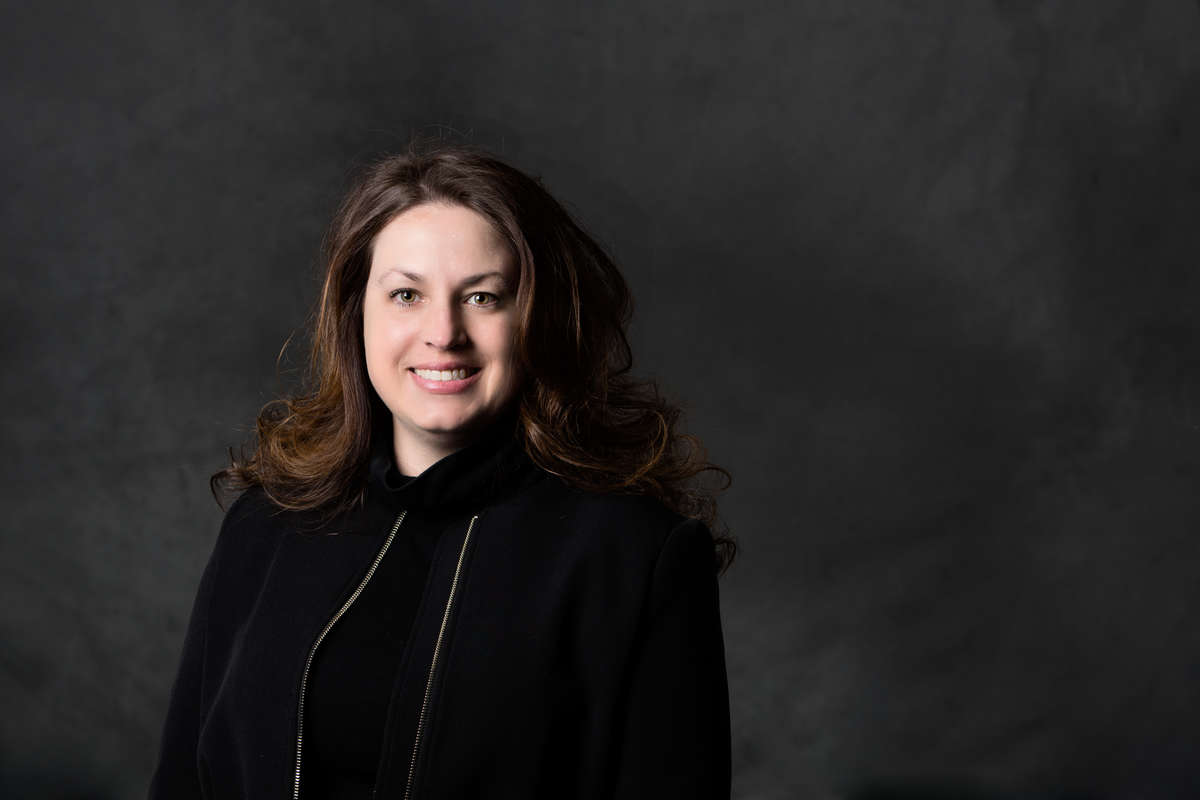
8. Is there anything else you would like to add?
Zwieg Daly: I would add two important items, First, we remain extremely grateful to The Hoffman Family Foundation and The Toro Company for their generous financial gifts. Funding makes our work possible! And, second, we are proud of our inaugural year’s foundational work and look forward to an even busier, more productive year two!

